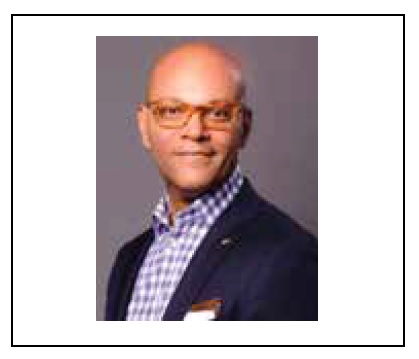
By Derek Barnes–
Many acknowledge that America is the wealthiest nation, but we are failing miserably in eradicating poverty on our own shores. Why haven’t we made more progress in eliminating this ailment? In a State of the Union address in 1964, President Lyndon B. Johnson declared an “unconditional war on poverty.” He set out to “not only relieve the symptom of poverty, but to cure it and, above all, to prevent it,” as he expressed in a later 1965 statement.
Like so many political leaders, President Johnson was forced into glory by the courage and influence of Black leaders of the time. Johnson set out on a bold political and economic campaign of sweeping changes, including the 1964 Economic Opportunity Act (EOA), Medicaid, Medicare, urban development and agricultural programs, and a slate of other social justice policy changes—voting, civil rights, desegregation, affirmative action, immigration, education, food programs, and more.
In the early 1960s, leaders like Martin Luther King, Jr., Robert Kennedy, and Malcolm X launched their campaigns against poverty because they saw the intrinsic link between poor economic conditions (including white people), social injustice, and racial inequality. But they all met their untimely fate promoting these radical ideas of fairness, equality, and justice for all. Since then, we’ve been tethered to a complicated history. In many ways, the ’60s mirrored the post-Civil War era in America (100 years earlier) for many of its citizens.
When evaluating the last 55 years, there has been a slow and steady movement to dismantle many of the programs that the Johnson administration put into motion. The question now is why and who should we blame for these lingering issues of poverty.
While thinking about the various drivers that are dismantling these social programs and policies, I was particularly triggered by a recent Op-ed piece by Bret Stephens of The New York Times. In the article, he casts some inditement towards progressive policies in “liberal” cities like San Francisco—contributing to CA’s mass exodus to other states as an outcome of bad legislation. One conclusion in reading the piece is that raising taxes alone can’t resolve longstanding systemic issues and imbalances in our profit-driven economy. In his analysis, Stephens fails to mention that about 70% of the poorest 15 states are Republican led. So, his argument that liberal policies are to blame for these looming conditions isn’t entirely valid.
Geographic, economic conditions are nuanced and layered. Conclusions aren’t always derived by binary comparisons—left vs. right, liberal vs. conservative, Democrat vs. Republican. One could argue that all are accountable when examining the political systems that actually support our economic policies.
Wealth redistribution alone (higher taxes), which is often the playbook of liberals, doesn’t work in isolation because it rarely gets to the root cause of a systemic problem. Why? The tendency to rid ourselves of the pain, trauma, or failures is mired in immediate gratification to “fix” without doing the real work to evaluate and repair deeply flawed structures. We’re fixated on the immediate needs of the most vocal constituents, who may seem to be the most impacted. In parallel, there’s not enough focus on other constituents in need, and we ignore nodes in power structures that benefit from the inefficiencies, imbalance, and division.
On the other side of the spectrum, different flavors of conservative trickle-down economics or market equilibrium models aren’t sufficient either. Unregulated or extreme forms of capitalism rely too heavily on individuals and businesses doing what’s right and fair to redistribute gains equitably and to reinvest in and replenish areas of need—philanthropy. The need for frugality under the guise of fiscal responsibility is often the excuse for not doing what’s morally right in supporting communities in need. After 40 years of exploring different versions of voodoo economics (coined by George H. Bush), the middle class, quality of life for many, and economic security have diminished for many Americans over the last four decades. We repeatedly place profits over people.
Why do both sides get it so wrong, and why do these problems persist? Unsustainable business models solely focused on profit and a broken political system that produces bad policy and encourages more debt are significant catalysts for this ailment. When a small number of powerful individuals or big businesses extract so much value from finite sources of labor and natural resources without replenishing those areas of extraction, you end up with the extreme conditions expressed today in a widening wealth gap—America becoming a tale of two cities.
Debt is also the most effective tool for population control, and it’s easy for the U.S. to print money and circulate its fiat currency to produce more of it. The byproducts of an uber-capitalist economy are essentially enslaving, disempowering, controlling, and relegating groups of people to a hard-to-escape condition. The system only provides the basic needs to keep people fiercely productive and dependent, or delivers tailor-made aspirations to keep them unwittingly consuming.
By the time the next federal stimulus has passed, America will have racked up almost $30T in public debt, and 50M people will still live in poverty, including one in every four children. In my next column, we’ll explore who really benefits from poverty and keeping a stable contingent of working-class poor.
Derek Barnes is CEO of East Bay Rental Housing Association (www.EBRHA.com ). He currently serves on the boards of Horizons Foundation and Homebridge CA. Follow him on Twitter @DerekBarnesSF or on Instagram at DerekBarnes.SF
Published on February 11, 2021





Recent Comments